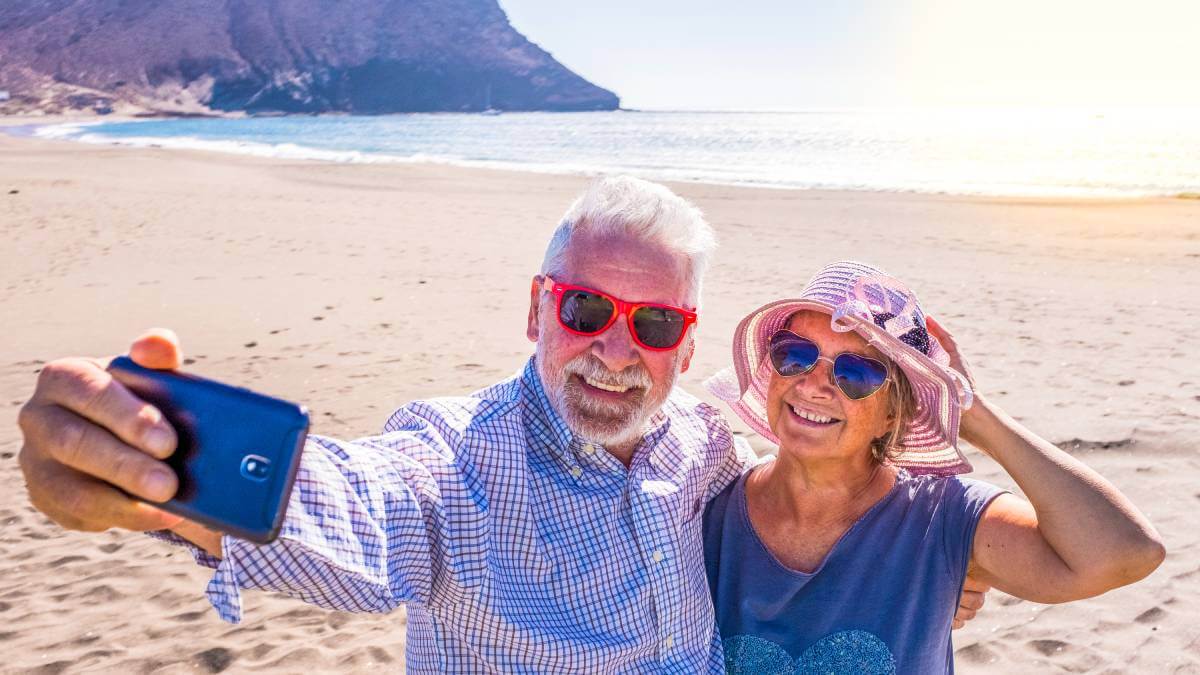When your long-awaited holiday finally arrives, it’s tempting to let the whole world know.
Many people want to share their excitement with friends and family, so they use social media to broadcast their activities in real time.
Some just want to generate some envy from those left at home. Guilty as charged.
But there’s a darker side to posting your holiday snaps that not everyone is aware of.
Trevor Cooke, online privacy expert at EarthWeb, explains why real-time posting can make you vulnerable to criminals.
Airport photos and check-ins
Posting airport photos or check-ins online will alert others to the fact that you’re not at home, and make your property a potential target for burglars. You’ll also pinpoint your location, which can be a safety concern.
If you can’t resist posting, at the very least make sure your privacy levels are set to the maximum level and not just any Joe Blow can find out your home is empty and ripe for the picking
Boarding passes
Never share photos of your boarding pass, as they feature a barcode that can reveal more details about your travel plans and private data. By using a barcode scanner – available online as an app – criminals can discover your flight, seat number, contact details and airline account number. They can then use this data to commit identity fraud.
They also can contact the airline, ask for a password reset using the hacked details and access your account and credit details.
For security’s sake use online boarding passes or if you prefer a physical pass shred it as soon as you have picked up your luggage (you may need it if your luggage is lost).
Hotel room pictures
If you’re staying in a luxurious hotel room, it can be tempting to show it off on social media. However, doing this could reveal your exact location and the duration of your stay, which could leave you vulnerable to stalking or targeted theft.
You should also never post your room number online, as criminals and other guests could seek to charge things to your room. It’s unlikely, but if you are carrying expensive items, you can never be too careful.
Location-tagged photos
These are an easy giveaway to your current whereabouts. They once again make your home an easy target for thieves by confirming you’re not at home and potentially put your safety at risk by broadcasting your exact location.
In fact, just never post your location in real time. I once went to a cyber security talk and the first thing the presenter recommended was turning off your location, whatever the situation.
Daily itinerary posts
These can seem like an exciting way to share your experiences with others and let them know about all the exciting adventures you’re having.
However, it also means people know where you’ll be at specific times, which can be a serious security risk, potentially making you a target for theft, stalking, and even kidnapping. And if you think that’s unlikely, little old sheltered me knows two instances of people being kidnapped in my social circle.
Remember that if your social media posts are set to ‘public’ rather than ‘private’, anyone can view them, which means criminals could see them too.
Photos of high-value items
Never flaunt pictures of expensive items or details of shopping sprees.
These can attract unwanted attention not just online, but also in the real world, making you a potential target for thieves.
I personally make a point of never packing or buying expensive items when travelling, not because of security, just because they will always be the first items I will lose.
“It’s advisable to wait until you’re safely back home to share your holiday memories,” says Mr Cooke.
“This protects your privacy and safety, ensuring your holiday remains a positive experience. If you follow these tips and hold off on posting your vacation pics until you’re safely back home, you won’t need to fear data or identify theft, burglary, or the loss of your belongings.”
Are you a serial poster when it comes to your holidays? Or do you stick to keeping it private? Why not share your experience in the comments section below?
Also read: Top travel trends for 2024

